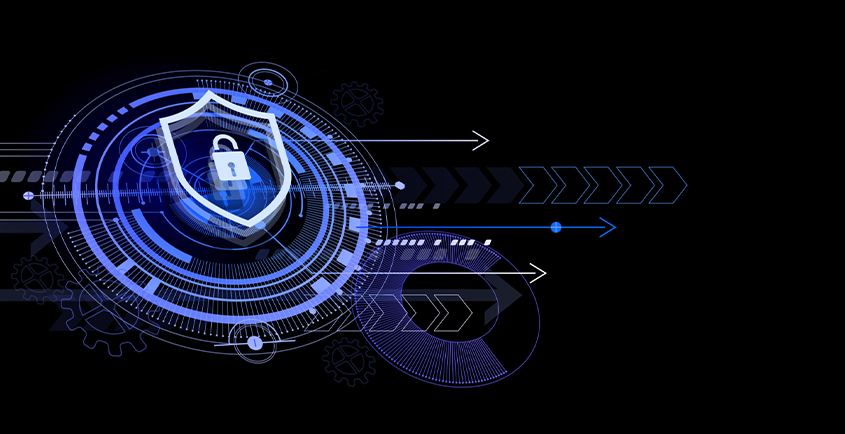A common misconception for small businesses is that your business is too small to be a target, but unfortunately, this is not the case. According to a report by Cybersecurity Ventures, worldwide, cybercrime expenses are anticipated to increase by 15% each year, reaching around USD 10.5 trillion by 2025. This clearly means that cyber security threats for small businesses are increasing at an alarming rate as well.
Small businesses’ cyber security breaches should be anticipated as soon as they embrace more creative technology to simplify operations despite implementing cyber security services.
In 2020, cyberattacks grew in large numbers and as per the estimates, the rise in attacks during the pandemic was approximately 100%. Now, even small businesses worldwide are confronted with unprecedented levels of risk. As a result, cyber security consulting remains the top priority for IT teams. Still, businesses that start at a small scale are not well aware of the cyberattacks and as a result, they either fail or face huge financial losses. Following are some of the most critical types of SME cyber security attacks that every organization should be aware of.
Top CyberThreats That Every Business Should Be Aware Of
Cyber security threats for small businesses cannot be ignored as they are the ones at the highest risk of a security breach because of the lack of power infrastructure. Below highlighted are the most common enterprise cyber security threats that SMEs may face
1. Phishing Attacks
The biggest and most widespread threat that small businesses face is phishing attacks. Phishing accounts are responsible for around 32% of confirmed data breaches and 78% of all cybercrimes. A phishing attack occurs when a hacker pretends to be someone employees can trust, be it their manager or the CEO, and entices a user to click a malicious link, download a malicious file, or give them access to account details, credentials, payment information, etc.
Here, the most common scenario is when hackers start emailing from a slightly similar email ID, and without implementation of the small business cybersecurity consulting services, it becomes fairly difficult to identify and control the threat. Typically, a hacker attaches a link or some file along with the mail so that people can enter their personal information.
2. Cloud Jacking
This is the process where cloud computing is infiltrated by a third party. Once the hacker gets into the organization’s cloud, they try to reconfigure the cloud code so as to manipulate the sensitive information, communication, & other data to expand their reach to take control of the entire cloud. Furthermore, cybercriminals use this opportunity to develop phishing schemes. This results in multiple mishaps like leakage of sensitive information, financial loss, etc.
3. Ransomware
Ransomware is one of the common and serious cyber attacks that involve encrypting company data so that it cannot be used or accessed until a ransom is paid to unlock the data. The ransom’s immediate losses are merely the tip of the iceberg. The monetary costs of missed production and data loss are frequently the most devastating to a firm.
This is the reason why 60% of small firms fail within six months after a cyber intrusion. Small business cybersecurity consulting at the right time can save them from ransomware attacks which is one of the top cyber-attacks and a common method for criminals to target especially small firms.
4. Patch Management
One of the most common cyber security risks for businesses is related to outdated software or patches. As a result, failing to keep up with software patches exposes businesses to a variety of information security vulnerabilities. When attackers get aware of a software vulnerability, they exploit it to conduct a cyber assault.
This trend in cyber security is exemplified by two large-scale cyberattacks that began in 2018. The attacks use a serious flaw in the Windows OS known as Eternal Blue. Organizations that failed to update their software were left exposed and ultimately, they face huge financial losses.
5. Deepfakes
Deepfakes are used to develop fake versions of an organization to lure in unsuspecting customers and also to gain access to the sensitive information of a business or an individual. This attack moreover contributes to an advanced form of phishing attack which impersonates the CEO’s reputation where a hacker gives wrong instructions to the employees.
This Cyberattack has been used over the last several years against both individuals and organizations. Such an attack is developed by AI that takes an existing voice recording, photo, or video to manipulate an organization or an individual’s image to falsify their action of speech.
In the past, cyber security threats for small businesses have surfaced frequently. Because the business IT threats are not just limited to the CXO level but have crept down to the employee level as well.
However, the advancement in security systems in conjugation with the right cyber security consulting services presents opportunities for significant security growth.
The passing year has demonstrated the fact that small businesses must adapt to the modern world and this year’s advancements have resolved such problems to a great /extent. Taking assistance from SVAM International, a leading provider of cyber security services for small businesses is a great start to identifying and filling the security loopholes for the business. Get in touch with our professionals, discuss your concerns, and get the best possible solutions.



